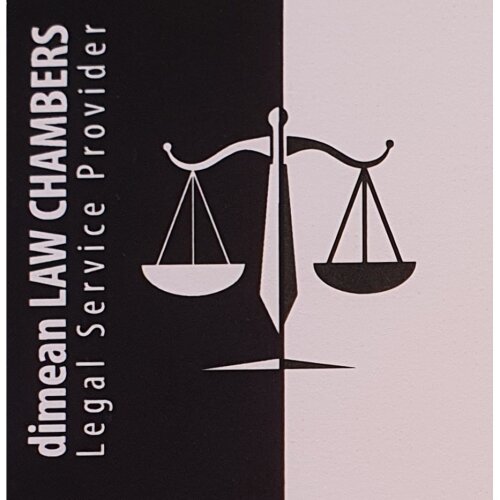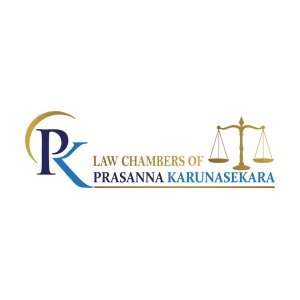Best Domestic Violence Lawyers in Sri Lanka
Share your needs with us, get contacted by law firms.
Free. Takes 2 min.
Free Guide to Hiring a Family Lawyer
Or refine your search by selecting a city:
List of the best lawyers in Sri Lanka
About Domestic Violence Law in Sri Lanka
Domestic violence in Sri Lanka is recognized as a serious issue affecting the safety and well-being of individuals within the family unit. The legal framework is designed to prevent acts of violence and provide protection to victims. The Prevention of Domestic Violence Act No. 34 of 2005 is the key legislation that addresses domestic violence in Sri Lanka. It provides measures for legal recourse and protection for victims through court intervention.
Why You May Need a Lawyer
There are several situations where seeking legal help in domestic violence cases may be necessary. Legal professionals can assist by advising on obtaining protection orders, representing victims in court, and helping to understand the victim's legal rights. They can also provide support in situations where legal documentation and filing are required, such as preparing affidavits or complaints. Victims may require legal assistance to navigate the complexities of the judicial process and to ensure their safety and the protection of their rights.
Local Laws Overview
The Prevention of Domestic Violence Act No. 34 of 2005 is pivotal legislation in Sri Lanka. This law allows victims to obtain court-issued protection orders against perpetrators, irrespective of the gender or relationship status of the parties involved. It provides immediate relief and protection, with provisions to prevent further violence. The Act empowers the police to assist victims by enforcing orders and ensuring compliance. Violation of protection orders is a punishable offense, and the legislation also facilitates counseling and rehabilitation for both victims and perpetrators.
Frequently Asked Questions
What constitutes domestic violence under the law?
Domestic violence includes physical abuse, sexual abuse, emotional abuse, and economic abuse. It encompasses any act that harms or threatens to harm the well-being of the victim within a domestic relationship.
Who can seek protection under the Domestic Violence Act?
Any person who is in a domestic relationship with the respondent, such as spouses, family members, or cohabitants, and has been subjected to violence, can seek protection under the Act.
How can I obtain a protection order?
You may apply to the magistrate’s court for a protection order with the assistance of a lawyer or by yourself, detailing the instances of violence experienced.
What is the role of the police in domestic violence cases?
The police are empowered to assist victims by taking complaints, ensuring perpetrators comply with protection orders, and providing necessary security.
Are protection orders immediately effective?
Yes, interim protection orders can be granted on an urgent basis if the court perceives immediate danger to the victim.
Can a protection order be varied or revoked?
Yes, the magistrate has the authority to vary, extend, or revoke a protection order upon application by either the victim or the respondent.
What remedies are available for victims of domestic violence?
In addition to protection orders, victims are entitled to legal remedies such as custody of children, residence orders, and financial relief.
Can men be victims of domestic violence?
Yes, men can also be victims of domestic violence and are entitled to seek legal protection under the Act.
Is domestic violence a criminal offense?
While domestic violence itself is addressed primarily through civil protection orders, breaches of these orders can lead to criminal charges.
What should I do if my safety is at immediate risk?
Contact local authorities or the police right away to ensure your safety and seek temporary protection until legal measures are put in place.
Additional Resources
Victims of domestic violence in Sri Lanka can access various resources for assistance. Key agencies include:
- The Sri Lanka Women's Bureau, which offers support and counseling services.
- The Ministry of Women and Child Affairs for policy implementation and advocacy.
- Non-Governmental Organizations such as Women in Need (WIN) which provide legal aid and victim support services.
- The National Child Protection Authority for cases involving child abuse.
Next Steps
If you believe you need legal assistance, consider taking the following steps:
- Seek an initial consultation with a lawyer specializing in domestic violence cases.
- Contact local support services for assistance and guidance.
- Document any incidents of violence and maintain records which can be useful in legal proceedings.
- Know your rights and the legal remedies available to you for protection and justice.
- Approach the police if your safety is immediately threatened and ensure you receive documented evidence of any reports made.
Taking these steps can provide clarity and direction in handling a domestic violence case, making it easier to navigate the legal system for the protection and enforcement of your rights.
Lawzana helps you find the best lawyers and law firms in Sri Lanka through a curated and pre-screened list of qualified legal professionals. Our platform offers rankings and detailed profiles of attorneys and law firms, allowing you to compare based on practice areas, including Domestic Violence, experience, and client feedback.
Each profile includes a description of the firm's areas of practice, client reviews, team members and partners, year of establishment, spoken languages, office locations, contact information, social media presence, and any published articles or resources. Most firms on our platform speak English and are experienced in both local and international legal matters.
Get a quote from top-rated law firms in Sri Lanka — quickly, securely, and without unnecessary hassle.
Disclaimer:
The information provided on this page is for general informational purposes only and does not constitute legal advice. While we strive to ensure the accuracy and relevance of the content, legal information may change over time, and interpretations of the law can vary. You should always consult with a qualified legal professional for advice specific to your situation.
We disclaim all liability for actions taken or not taken based on the content of this page. If you believe any information is incorrect or outdated, please contact us, and we will review and update it where appropriate.
Browse domestic violence law firms by city in Sri Lanka
Refine your search by selecting a city.















